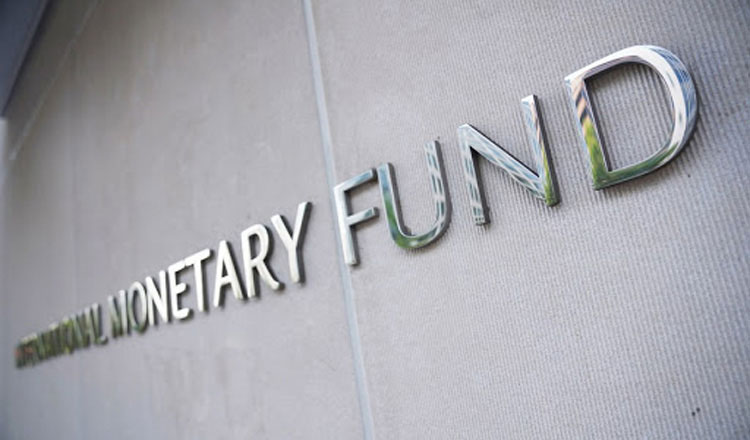Cambodia: IMF warns of the risk of rising bad debt and climate change
International Monetary Fund (IMF) has wrapped up two weeks of talks with Cambodian authorities, forecasting a gradual return to 6.5 percent economic growth in the medium term. However, it warned of three downside risks to growth: a resurgence of the Coronavirus pandemic, the possibility of rising bad loans and the dangers of climate change.
The IMF said the chance of uncontrolled local Covid-19 outbreaks and a global resurgence of the pandemic is medium, from 10 to 30 percent, even though nearly 90 percent of the population has now been fully vaccinated.
“A resurgence of domestic cases due to vaccination-resistant variants could pose significant threat to the recovery, with effects felt across all economic sectors,” the IMF said. “Lower growth abroad due a resurgence of the pandemic could affect exports and remittances, and compromise the return to international travel, with significant effects on domestic GDP and current account balances.”
On the positive side the IMF noted that foreign direct investment remains stable and the risk of a sharp drop in the riel is unlikely in spite of slight downward pressure earlier in the year.
Cambodia is heavily reliant on tourist spending for a return to pre-Covid growth levels since it made up as much as one third of GDP in pre-pandemic times.
“Permanent changes in international travel patterns could damage the tourism industry,” the IMF said. “Labour reallocation away from services may be difficult and result in a large fraction of the labour force reverting to low- productivity agricultural production.”
The IMF warned of the rapid increase in private debt and said many households and businesses would be at risk if loan holidays end abruptly. It also noted that the real estate and construction sectors rely heavily on credit provided by developers who are not supervised by the central bank.
“Substantial loan forbearance in 2020 may have left many financial institutions with weak balance sheet positions,” the IMF warned, although it said the establishment of the Non-Bank Financial Services Authority last year was a “significant step in the direction of broader supervision of the financial system. “Timely collection and disclosure of data on loan performance is crucial. Exit from loan forbearance should be timed carefully,” it said.
The IMF put the risk of financial vulnerabilities and severe natural disasters at between 30 and 50 percent. “Floods, droughts and changing monsoon patterns pose a severe threat to agricultural production, a crucial source of income for the most vulnerable segments of the population as well as an important source of exports,” it said. “Urban areas located close to riverbanks have experienced flooding, which threaten industrial production and housing. Forced migration of large segments of the population may pose social and fiscal challenges.”
The IMF said the government needs to continue investing in climate-resilient infrastructure, reforestation and securing agricultural production and food security.
“In the long run, it is crucial to budget for support to households and firms affected by extreme weather,” it said.
The dangers of higher international commodity prices and cyber-attacks are rated as medium.
“Rising commodity prices could reduce households’ purchasing power and increase relative poverty,” the IMF said, also warning that “government and private sector information systems are vulnerable to security breaches.”
The IMF said the risk of widespread social discontent and political instability was less than 10 percent.
“The political situation has been stable in recent years. Government control over political institutions is strong. The government has enacted several fiscal measures to protect the most vulnerable segments of population during the pandemic,” the IMF said.
Source: https://www.khmertimeskh.com/50987800/imf-warns-of-the-risk-of-rising-bad-debt-and-climate-change/


 English
English




